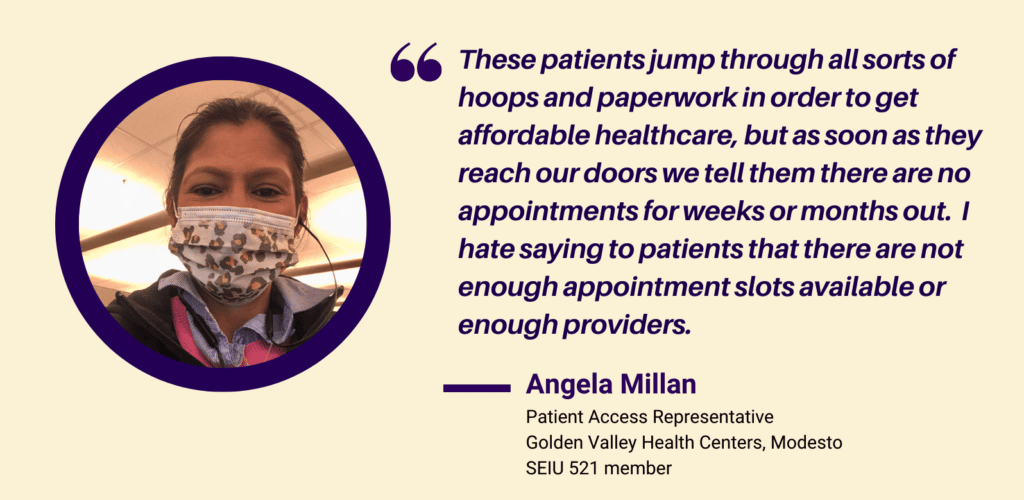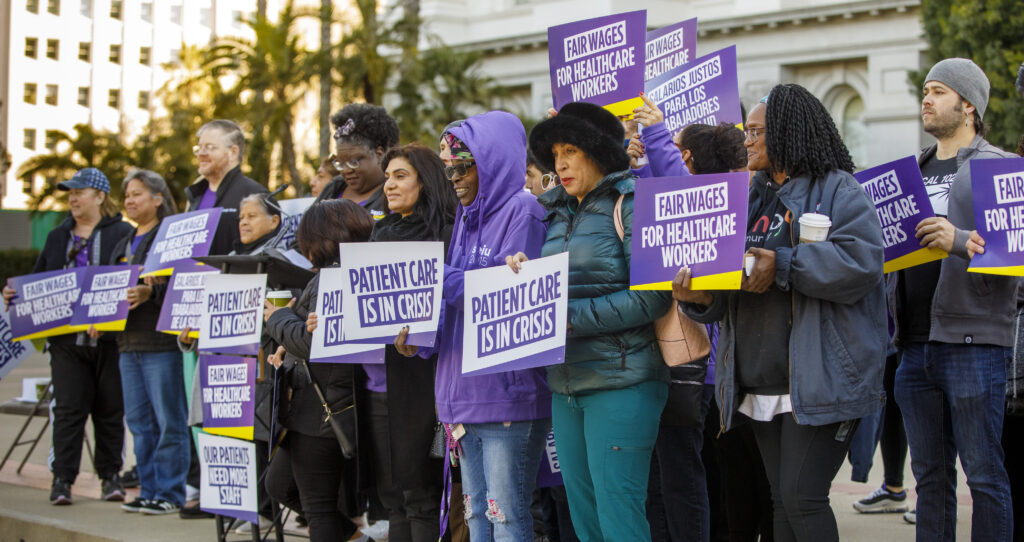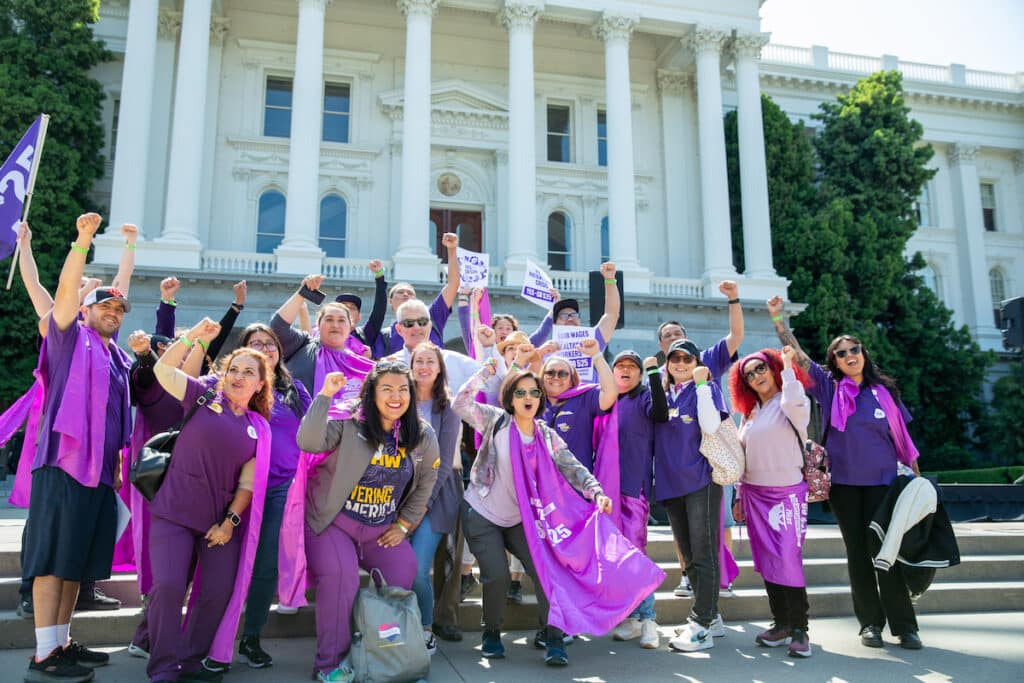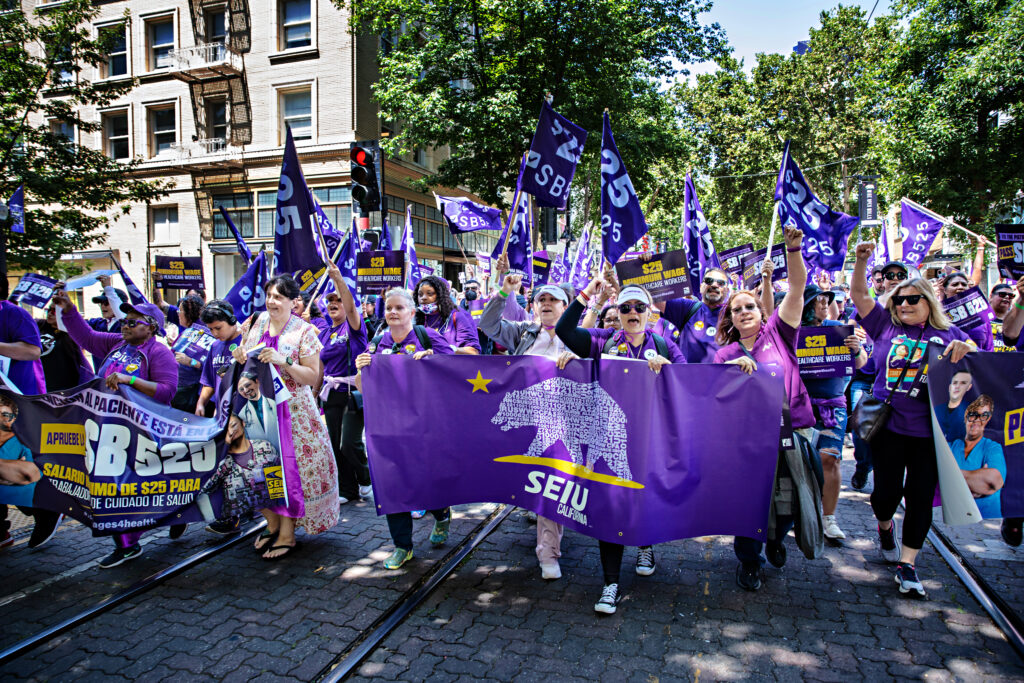About our movement

California's community clinics need help
Our community clinics have fallen into a crisis driven driven by understaffing, low pay, and sub-standard benefits for the essential workers keeping clinics running—all of which impacts timely access to care for our patients. California has made progress, but without improvements to our state’s safety net care we can’t fully deliver on the promise of providing access to healthcare for our vulnerable residents.
In 2022, we secured $70 million in recruitment and retention bonuses and in 2023 we won improved clinic transparency and a first-of-its-kind $25/hour minimum wage for clinic workers, but we know that to address the long-standing problems facing our clinics, we have to continue to speak out and demand more for our patients and for the dedicated healthcare workers at our clinics. We have to demand a union!
Empowering Clinic Workers
Clinic workers understand the root of the problems that they and their patients face every day. Clinic workers are joining together in a union, demanding a seat at the table with clinic executives so that workers can have a say in the decisions that impact patient care, in addition to having the opportunity to bargain for decent pay and benefits.
Our Victories
$1,000 Clinic Retention Bonus
Last year we secured $70 million in funding for retention bonuses for clinic workers. This year we once again made history by passing two landmark pieces of legislation
Clinic Transparency Bill (Senate Bill 779)
Makes sure that clinic executives are using funding to ensure that there are enough workers and that clinic funding is being spent on training programs that will help workers and patients – not just pay raises for clinic executives.
$25/hr Healthcare Minimum Wage Bill (Senate Bill 525)
Creates the nation’s first $25/hour healthcare worker minimum wage to fix our state’s healthcare worker shortage and ensures that healthcare workers can do the work they love and pay their bills
Community Clinics are required to raise the minimum wage to
$21 in Summer 2024
$22 in Summer 2026
$25 in Summer 2027
By creating a higher minimum wage for least paid workers, we raise the wage floor. This creates a ripple effect in the economy so even workers who are paid more than $25/hour get pay raises too. By staying united in our union and demanding clinic executives do the right thing, we can make sure that all clinic workers see wage increases.

How CCWU Members Are Making History
From heading to Sacramento to speak to lawmakers to standing together in our clinics to demand fair treatment from managers at our worksites, we’re making sure that clinic workers are heard loud and clear.

We’re Just Getting Started
To continue winning for clinic workers and the patients we serve, we have to stay united with SEIU-CCWU. Sign up or sign up additional clinic workers to become a part of SEIU Community Clinic Workers United to get the latest news and how you can be part of positive change for our clinics, our patients, and for all clinic workers in California.
Continue to build our union by joining CCWU and becoming an action leader!
Share our stories with elected representatives and the public.
Hold employers accountable and make sure they aren’t breaking the law by not paying us fairly.
